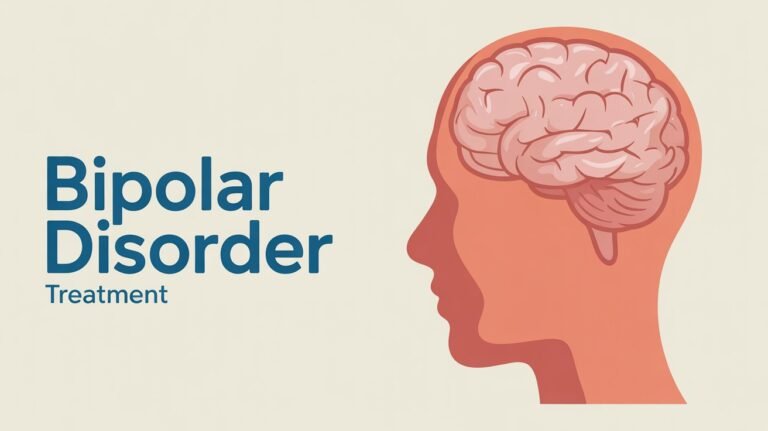Schizophrenia Treatment in Rawalpindi – Complete Guide to Recovery

Introduction
Schizophrenia is a serious and long-term mental health disorder that affects how a person thinks, feels, and behaves. It is often misunderstood and surrounded by stigma, especially in developing countries like Pakistan. However, modern psychiatry has shown that with the right schizophrenia treatment in Rawalpindi, patients can control symptoms, live productive lives, and reduce relapses.
This detailed guide explains what schizophrenia is, its symptoms, causes, and the treatment options available in Rawalpindi. The aim is to provide accurate and useful information for patients, families, and anyone searching for mental health solutions.
What is Schizophrenia?
Schizophrenia is a chronic brain disorder that interferes with reality. People with this condition may hear voices, see things that are not real, or believe in ideas that are not based on reality. The disorder typically develops in young adulthood, although it can appear earlier or later in life.
Key Symptoms
- Positive Symptoms
- Hallucinations (hearing voices, seeing things)
- Delusions (false and fixed beliefs)
- Disorganized speech
- Abnormal movements
- Negative Symptoms
- Reduced emotional expression
- Lack of motivation
- Withdrawal from social activities
- Difficulty maintaining hygiene or responsibilities
- Cognitive Symptoms
- Poor memory
- Difficulty concentrating
- Impaired decision-making
These symptoms vary in intensity but usually disrupt work, relationships, and daily living.
Causes and Risk Factors
The exact cause of schizophrenia is not fully known, but research shows a combination of biological, genetic, and environmental factors contribute:
- Genetics: Family history increases risk.
- Brain Chemistry: Imbalance in neurotransmitters like dopamine and glutamate.
- Brain Structure: Some patients have subtle differences in brain structure.
- Environmental Stressors: Trauma, drug use, and stressful life events may trigger symptoms.
Importance of Early Treatment
Starting schizophrenia treatment in Rawalpindi as soon as symptoms appear makes a significant difference in outcomes. Early treatment can:
- Prevent worsening of symptoms
- Improve chances of long-term stability
- Reduce relapses and hospitalizations
- Allow patients to continue education or work
Delaying treatment increases complications and makes recovery slower.
Treatment Options for Schizophrenia in Rawalpindi
1. Antipsychotic Medications
- Main line of treatment.
- Reduce hallucinations and delusions.
- Available as tablets, liquids, or injections.
- Regular psychiatric checkups are required to monitor side effects and effectiveness.
2. Psychotherapy
- Cognitive Behavioral Therapy (CBT): Helps patients recognize distorted thoughts and manage stress.
- Supportive Therapy: Improves coping skills and emotional expression.
- Social Skills Therapy: Rebuilds communication and relationship abilities.
3. Family Therapy and Education
- Families play a vital role in recovery.
- Therapy sessions teach how to support patients at home.
- Reduces stress and improves family communication.
4. Rehabilitation and Vocational Training
- Programs designed to improve independence.
- Helps patients return to work, education, or social life.
- Focus on confidence, responsibility, and long-term stability.
5. Community-Based Care
- Support groups provide encouragement and shared experiences.
- Day-care centers and rehabilitation clinics in Rawalpindi are increasingly offering structured recovery programs.
Daily Management Strategies
Effective schizophrenia treatment is not only medical but also lifestyle-oriented. Patients and families should focus on:
- Routine: Consistent sleep, meals, and daily structure.
- Exercise: Regular activity helps reduce stress and improve mental health.
- Balanced Diet: Supports overall brain and body health.
- Stress Management: Meditation, breathing exercises, and mindfulness reduce anxiety.
- Medication Adherence: Consistently taking prescribed medicines prevents relapse.
Barriers to Treatment in Pakistan
Despite available services, several challenges make schizophrenia treatment difficult in Pakistan:
- Stigma and Misunderstanding
- Many people associate schizophrenia with supernatural causes.
- Patients are often hidden instead of treated.
- Limited Mental Health Resources
- Shortage of psychiatrists and trained therapists.
- Rural areas have fewer services.
- Financial Burden
- Long-term medication and therapy can be expensive.
- Many families struggle with affordability.
- Awareness Gap
- Lack of knowledge about early symptoms.
- Families often delay seeking medical help.
Common Questions about Schizophrenia Treatment
Q1: Can schizophrenia be cured?
It cannot be completely cured, but symptoms can be managed. Many patients live fulfilling lives with consistent treatment.
Q2: How long does treatment take?
Usually lifelong. The intensity of care may decrease with time, but follow-ups are essential.
Q3: What role do families play?
Families ensure medication compliance, provide emotional support, and reduce stress at home.
Q4: Are side effects of medication permanent?
Most side effects can be managed by adjusting doses or switching medications. Doctors monitor closely.
Q5: Can a person with schizophrenia work or study?
Yes. With proper treatment and support, many individuals successfully continue education and employment.
Future of Schizophrenia Treatment in Rawalpindi
Mental health services in Rawalpindi are expanding. Awareness campaigns, psychiatric clinics, and telehealth platforms are improving access. As stigma reduces and services grow, more people can benefit from professional schizophrenia treatment in Rawalpindi.
Conclusion
Schizophrenia is a challenging disorder, but it is not without hope. Through medical treatment, therapy, rehabilitation, and family support, patients can regain stability and independence. The key is early diagnosis, consistent care, and awareness. With better access to schizophrenia treatment in Rawalpindi, families no longer need to suffer in silence—professional help is within reach.
By breaking stigma and prioritizing mental health, we can ensure that schizophrenia patients live with dignity, stability, and hope.





